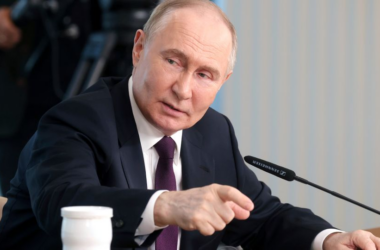Jordan’s foreign minister, Ayman Safadi, has strongly condemned the Israeli government’s perceived “radical racist agenda,” accusing it of defying the global consensus by rejecting a two-state solution for Israel and Palestine. The remarks were made during a press conference at a meeting of EU foreign ministers in Brussels, where Safadi stressed that a two-state solution remains the only viable path to address the ongoing conflict in the region.
Safadi’s critical comments shed light on the persistent diplomatic tensions surrounding the Israel-Palestine conflict. Despite widespread international support for a two-state solution as a means to achieve a lasting resolution, the Israeli government’s refusal to embrace this approach has sparked concern and condemnation from various quarters.
“The only way out of this misery is a two-state solution,” Safadi asserted, emphasizing the urgency of adopting a diplomatic framework that respects the sovereignty and aspirations of both Israel and Palestine. The foreign minister’s statements underscore the growing frustration among nations advocating for a peaceful resolution in the face of Israel’s resistance to the established international consensus.
Addressing reporters in Brussels, Safadi urged the international community to take a unified and unequivocal stance against Israel’s deviation from the widely supported two-state solution. He highlighted the significance of collective action, emphasizing that the world must not allow Israel to disregard the recommendations and resolutions endorsed by the broader international community.
“The only way out of this misery is a two-state solution,” Safadi reiterated, emphasizing that a resolution to the protracted conflict hinges on respecting the principles of territorial integrity, self-determination, and mutual recognition.
The rejection of the two-state solution by Israel raises concerns about the potential consequences for the peace process in the Middle East. With the international community, including the European Union, advocating for a diplomatic resolution, Israel’s deviation from this widely supported framework poses challenges to achieving sustainable peace and stability in the region.
Safadi’s comments also highlight the need for renewed diplomatic efforts and engagement to break the longstanding deadlock. As nations grapple with finding a common ground to address the Israel-Palestine conflict, the urgency of promoting dialogue and encouraging both parties to come to the negotiating table becomes increasingly evident.
The international community, through forums such as the EU foreign ministers’ meeting, has consistently emphasized the importance of upholding the two-state solution as the most viable path to address the Israel-Palestine conflict. Safadi’s statements echo this sentiment, calling for a united front to push for adherence to the established consensus and to work towards a resolution that respects the rights and aspirations of both Israelis and Palestinians.
Jordan’s foreign minister’s strong condemnation of Israel’s rejection of the two-state solution underscores the challenges facing the international community in resolving the protracted Israel-Palestine conflict. As diplomatic tensions persist, the need for concerted global efforts to reaffirm the consensus on a two-state solution becomes paramount. The world watches closely as nations grapple with finding a path towards lasting peace in the Middle East, emphasizing the urgency of diplomatic initiatives and dialogue to break the current impasse.








